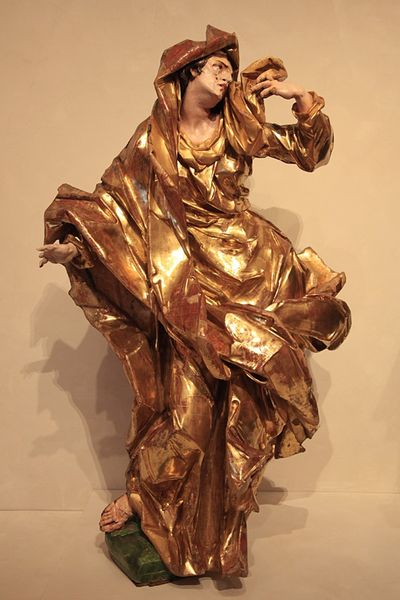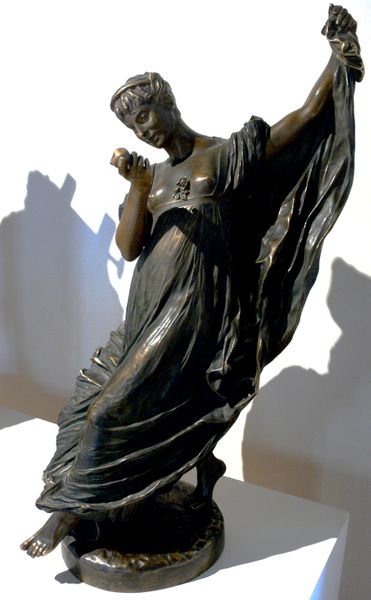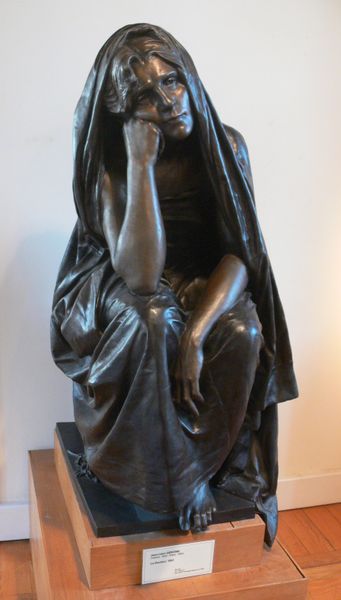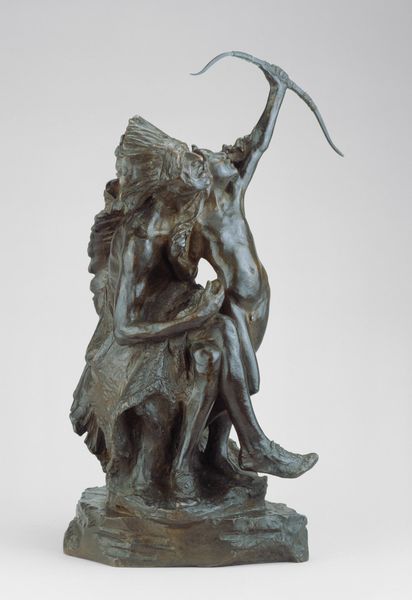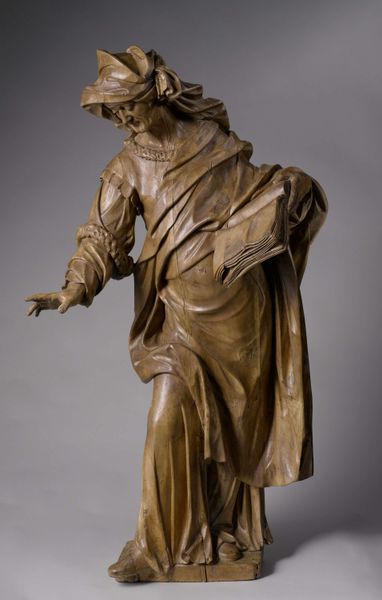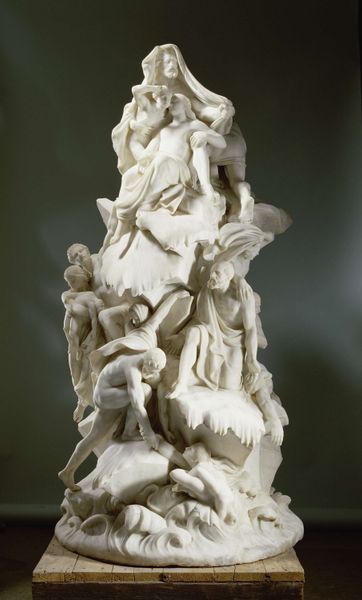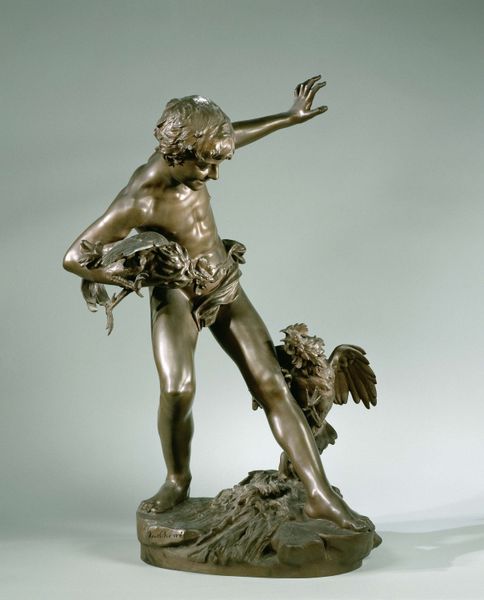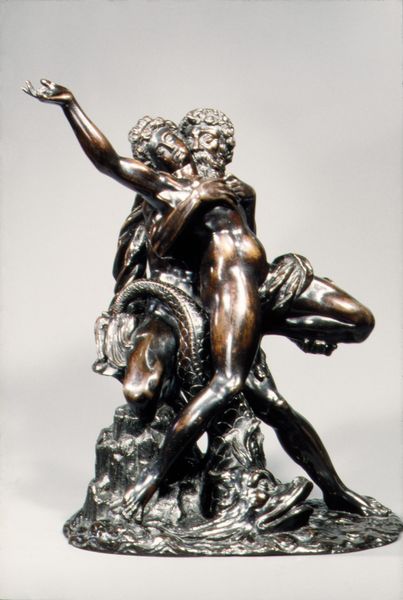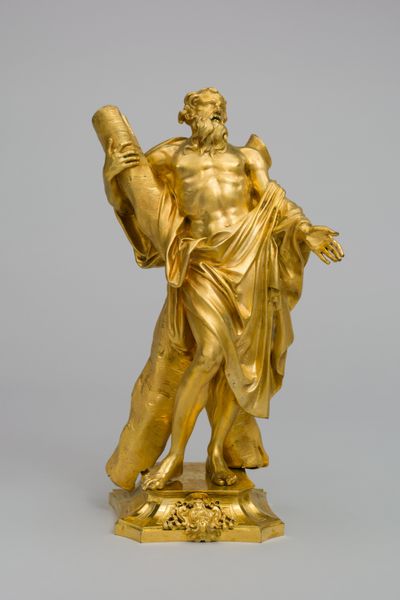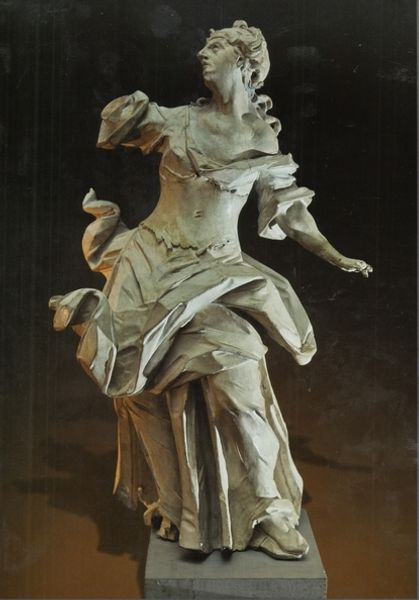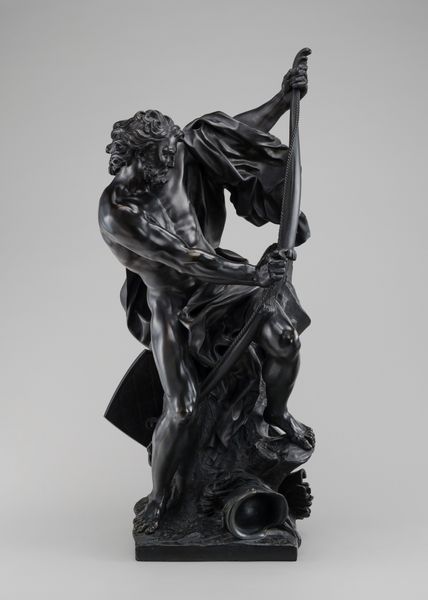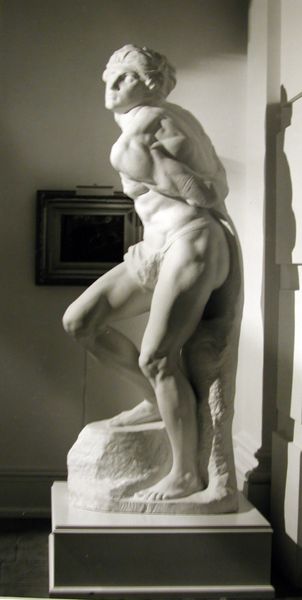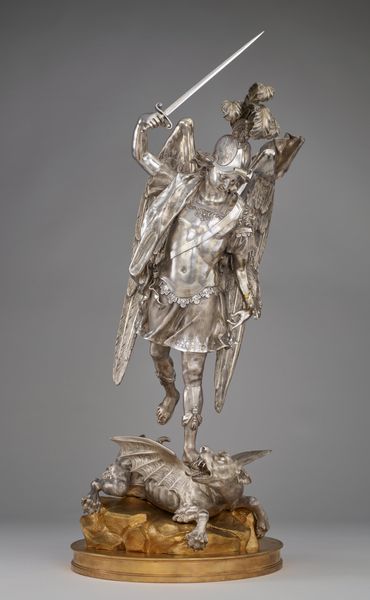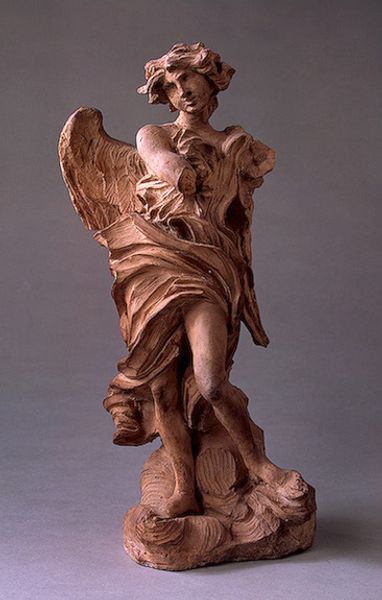
bronze, sculpture
#
small interior
#
cobweb
#
website interface
#
corner
#
statue
#
clutter
#
entrance
#
bronze
#
web browsing
#
ui concept
#
sculpture
#
technology juxtaposition
#
christianity
#
men
#
chaotic composition
#
christ
Copyright: Public domain
Curator: This sculpture stops you dead, doesn't it? So visceral! Like stumbling into the heart of someone's anguished dream. Editor: Indeed. The raw energy emanating from "Abraham’s Sacrifice," executed around 1760 by Johann Georg Pinzel, is immediately striking. The composition, the torsion of the figures... Curator: The *drama*, my god. It’s like the air itself is cracking around Abraham as he’s poised, ready to... well, you know. That sword practically vibrates. Is that even a face? It's just raw terror chiseled out. But... I'm confused! Why is the color gold? It’s opulent. Sacrifices and royalty? What? Editor: Gold here, applied over wood, acts less as literal representation and more as symbolic signifier, lending a heightened sense of the sacred and divine justification, the baroque exuberance serving a precise ideological function. Curator: Exuberance... even facing this? Pinzel is pushing it. It's beautiful, sure, in that 'can't-look-away' kind of way, like staring at a train wreck. That makes him great! The dude made God into a freaking theatre of cruelty, and you stand in front of this, thinking—who is going to stand between devotion and madness? Editor: Pinzel captures a decisive narrative moment—a confluence of faith, obedience, and the intervention of the divine, articulated in the almost frenzied carving, its semiotic charge enhanced by the gilding's signifying power. A potent condensation of religious narrative in sculptural form. Curator: Condensation. A great word for a great mess. Pinzel somehow condenses our deepest terrors and weirdest exaltations in the most uncomfortable embrace. Editor: Leaving us with a richer understanding of sculpture's profound capacity to engage with religious fervor in a period of baroque aesthetics.
Comments
No comments
Be the first to comment and join the conversation on the ultimate creative platform.
